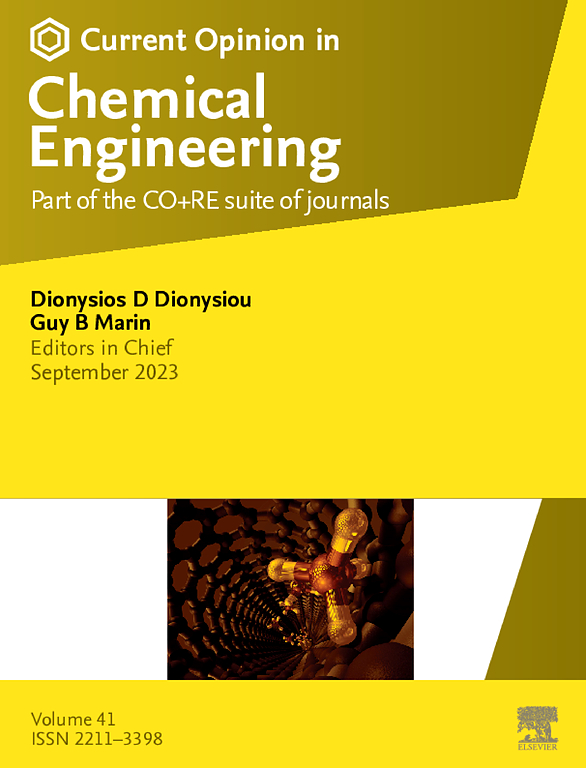化工过程控制的创新:挑战与机遇
IF 6.8
2区 工程技术
Q1 BIOTECHNOLOGY & APPLIED MICROBIOLOGY
引用次数: 0
摘要
本文提供了基于在卡内基梅隆大学(2019年)、俄亥俄州立大学(2023年)和西弗吉尼亚大学(2024年)举行的中大西洋过程控制学会会议的化学过程控制创新的当前观点,下一次会议计划在韦恩州立大学(2025年)举行。这些会议于2019年举行,主要目的是讨论模型预测控制(MPC)的当前方向以及与过程控制相关的过程系统工程界的新突破。在这些会议的背景下,本文讨论的主题包括过程的可操作性和灵活性、量子计算、贝叶斯优化以及非线性和经济模型预测控制。对于每个主题,讨论了最近的理论、应用和软件基础设施的发展,并概述了未来研究方向的当前挑战和机遇。本文章由计算机程序翻译,如有差异,请以英文原文为准。
Innovations in chemical process control: challenges and opportunities
This paper provides a current perspective on innovations in chemical process control based on Mid-Atlantic Process Control Academy meetings held at Carnegie Mellon University (in 2019), Ohio State University (in 2023), and West Virginia University (in 2024), with the next one scheduled at Wayne State University (in 2025). These meetings were introduced in 2019 with the main objectives of discussing the current directions on model predictive control (MPC) as well as new breakthroughs in the process systems engineering community associated with process control. Topics addressed in this paper in the context of these meetings include process operability and flexibility, quantum computing, Bayesian optimization, and nonlinear and economic model predictive control. For each topic, recent theory, applications, and software infrastructure developments are discussed, and current challenges and opportunities for future research directions are outlined.
求助全文
通过发布文献求助,成功后即可免费获取论文全文。
去求助
来源期刊

Current Opinion in Chemical Engineering
BIOTECHNOLOGY & APPLIED MICROBIOLOGYENGINE-ENGINEERING, CHEMICAL
CiteScore
12.80
自引率
3.00%
发文量
114
期刊介绍:
Current Opinion in Chemical Engineering is devoted to bringing forth short and focused review articles written by experts on current advances in different areas of chemical engineering. Only invited review articles will be published.
The goals of each review article in Current Opinion in Chemical Engineering are:
1. To acquaint the reader/researcher with the most important recent papers in the given topic.
2. To provide the reader with the views/opinions of the expert in each topic.
The reviews are short (about 2500 words or 5-10 printed pages with figures) and serve as an invaluable source of information for researchers, teachers, professionals and students. The reviews also aim to stimulate exchange of ideas among experts.
Themed sections:
Each review will focus on particular aspects of one of the following themed sections of chemical engineering:
1. Nanotechnology
2. Energy and environmental engineering
3. Biotechnology and bioprocess engineering
4. Biological engineering (covering tissue engineering, regenerative medicine, drug delivery)
5. Separation engineering (covering membrane technologies, adsorbents, desalination, distillation etc.)
6. Materials engineering (covering biomaterials, inorganic especially ceramic materials, nanostructured materials).
7. Process systems engineering
8. Reaction engineering and catalysis.
 求助内容:
求助内容: 应助结果提醒方式:
应助结果提醒方式:


